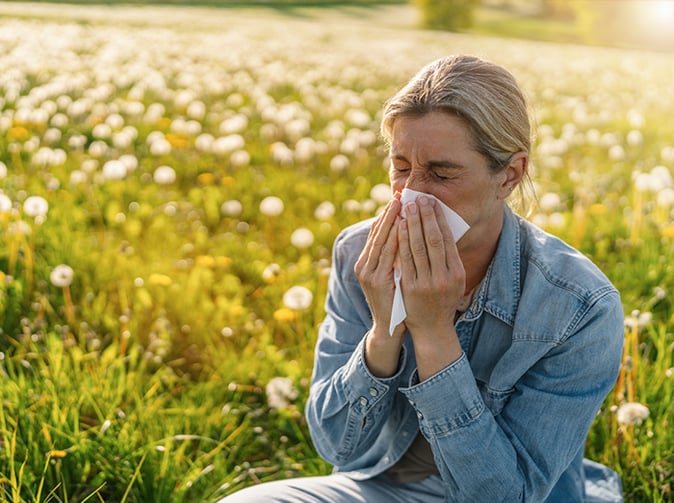Spring is in the air—and unfortunately, so is pollen. If you're one of the millions of Americans who suffer from seasonal allergies, you already know how they can impact your daily life. But if you also have sleep apnea, those allergy symptoms can make your nights even more difficult.
Let’s explore how springtime allergies and sleep apnea intersect—and what you can do to breathe easier and sleep better.

What Is Sleep Apnea?
There are three types:
- Obstructive Sleep Apnea (OSA): Caused by physical blockage of the airway, usually from relaxed muscles and soft tissue in the throat.
- Central Sleep Apnea (CSA): A neurological issue in which the brain fails to signal the body to breathe.
- Complex Sleep Apnea: A combination of both obstructive and central apnea.
How Allergies Worsen Obstructive Sleep Apnea
Seasonal allergies trigger an immune response that leads to nasal congestion, inflammation, and increased mucus production. For someone with OSA, these symptoms can worsen airway blockages, leading to more frequent breathing interruptions at night.
Congestion may also:
- Make it harder to use a CPAP machine comfortably
- Lead to mouth breathing, which can dry out the throat
- Disrupt your sleep quality even further
Why Sleep Apnea Deserves Your Attention
Sleep apnea is more than a nighttime nuisance—it’s a serious health condition that can lead to:
- High blood pressure
- Heart disease
- Type 2 diabetes
- Weight gain
- Mood disorders
- Memory and concentration issues
If you're dealing with both allergies and sleep apnea, here are some ways to find relief:
- Use antihistamines or allergy medications approved by your doctor
- Shower before bed to remove pollen from hair and skin
- Close windows and use an air purifier with a HEPA filter
- Wash bedding regularly to reduce allergens in your sleep space
- Avoid outdoor activities when pollen counts are highest
Take the First Step: Get Tested at Home
If you snore, wake up gasping for air, or feel exhausted even after a full night's sleep, you could be one of the many people living with undiagnosed sleep apnea.
The good news? You can take a simple sleep apnea test at home—no overnight lab visit required.
At SleepTest.com, we make it easy to take control of your sleep health. Our at-home sleep test is convenient, accurate, and designed to help you get the answers you need—fast.
Start your journey today with a home sleep test.

Love can be fiery and passionate or sweet and steady—but snoring? Not so much. Whether you're in the honeymoon phase or years into your journey together, snoring can shake up a relationship. With Valentine’s Day around the corner, let’s take a fun look at how snoring can impact your love life.

New Year’s resolutions are made with the best intentions—hitting the gym, eating healthier, and committing to self-improvement. Millions of people dive in, signing up for memberships, filling their fridges with fresh produce, and stacking self-help books on their nightstands. But as the months go by, workouts slow down, nutritious meals are replaced with convenience foods, and those books remain unread. Why do so many resolutions fail? One major factor that often gets overlooked is sleep. Poor sleep can derail motivation and energy, making it harder to stick to your goals. Let’s explore how a sleep test could be the key to staying on track.




